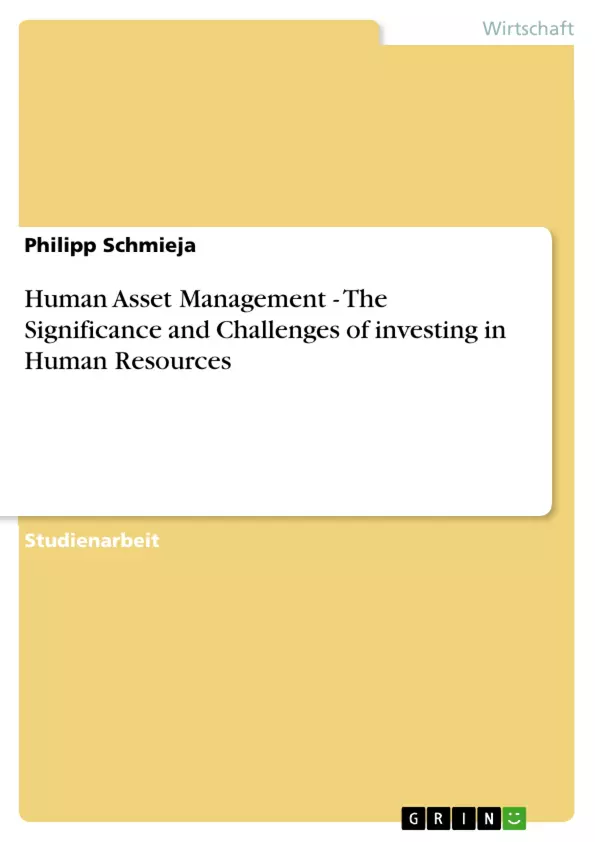In a rapidly changing business environment organizations are increasingly realizing that people are the most critical con-tributors to success. In order to compete in the twenty-first century, Human Resources professionals have to focus on various tasks and challenges. Managing knowledge workers becomes a new challenge.
Companies that want to cope with the challenges have to invest in the development of the skills of their employees. The tools and methods for identification and transfer of knowledge can be grouped under the term of “Skill Management”.
But can Skill Management actually contribute to the entrepreneurial success? What are the tasks and challenges that have to be faced by a modern HRM? Why are people the most important asset of an organization, and what are currently important requirements to attract, engage, and retain knowledge workers?
Inhaltsverzeichnis
- 1 Introduction and methodological approach
- 2 Definition and delimitation of relevant terminology
- 2.1 Managing human capital
- 2.2 Knowledge workers and Skill Management
- 3 The significance of intangibles and Human Resources
- 3.1 Human capital: people as an asset
- 3.2 Tasks and challenges of Human Resource Management
- 4 Skill Management and its main application areas
- 4.1 Main fields of application and improvements by Skill Management
- 4.2 Problems and limitations of Skill Management
- 5 Managing knowledge workers
- 5.1 Employing the older workforce
- 5.2 Career development program
- 5.3 Employment benefits
- 6 Summary
Zielsetzung und Themenschwerpunkte
Diese Arbeit untersucht die Bedeutung des Humankapitals und die Herausforderungen bei der Investition in Humanressourcen. Sie beleuchtet die Rolle des Human Resource Managements (HRM) im modernen Geschäftsumfeld und analysiert den Beitrag von Skill Management (SM) zum Unternehmenserfolg. Die Arbeit fokussiert auf die spezifischen Bedürfnisse von Wissensarbeitern und die Notwendigkeit, diese effektiv zu managen.
- Bedeutung von Humankapital als immaterieller Vermögenswert
- Aufgaben und Herausforderungen des modernen HRM
- Wirkung und Grenzen von Skill Management
- Management von Wissensarbeitern (z.B. ältere Mitarbeiter, Karriereentwicklung, Benefits)
- Beitrag von HR zum Unternehmenserfolg
Zusammenfassung der Kapitel
Kapitel 2 definiert zentrale Begriffe wie Humankapital, HRM und SM. Kapitel 3 betont die Bedeutung von Mitarbeitern als immateriellen Vermögenswert und beschreibt die Aufgaben und Herausforderungen des HRM. Kapitel 4 beleuchtet die Anwendung und Grenzen von Skill Management. Kapitel 5 behandelt Aspekte des Wissensarbeiter-Managements, fokussiert auf die Beschäftigung älterer Mitarbeiter, Karriereprogramme und Mitarbeitervergütungen.
Schlüsselwörter
Humankapital, Human Resource Management (HRM), Skill Management (SM), Wissensarbeiter, immaterielle Vermögenswerte, Mitarbeitermotivation, Unternehmenserfolg, Karriereentwicklung, Altersmanagement, Mitarbeitervergütung.
- Quote paper
- Bachelor of Arts Philipp Schmieja (Author), 2011, Human Asset Management - The Significance and Challenges of investing in Human Resources, Munich, GRIN Verlag, https://www.grin.com/document/182130



